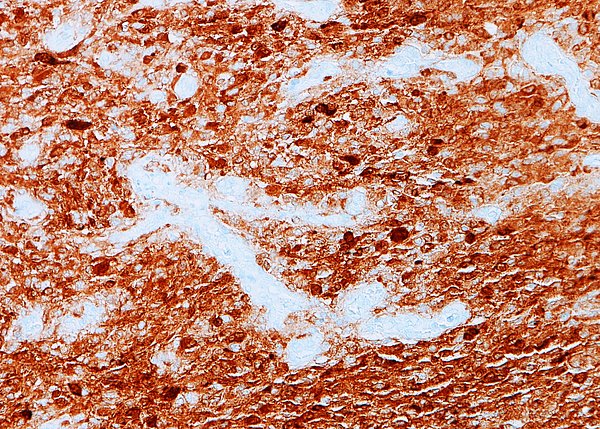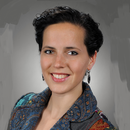The Hopp Children’s Cancer Center Heidelberg (KiTZ) is a joint institution of the German Cancer Research Center (DKFZ), University Hospital Heidelberg (UKHD) and the University of Heidelberg (Uni HD).
High-grade gliomas, a particularly aggressive type of childhood brain tumor, have a very poor prognosis – only around 20 percent of patients survive for more than five years. In infants younger than 12 months, however, the survival chances tend to be better.
In the largest, most comprehensive study on gliomas in infants to date, KiTZ researchers and their counterparts discovered that these tumors differ in molecular terms from those of older children, making them less aggressive. In collaboration with researchers at the Institute of Cancer Research in London, the Great Ormond Street Institute of Child Health at University College London (UCL), and St. Jude Children´s Research Hospital in the USA, KiTZ researchers investigated the molecular properties of gliomas in 241 children around the world. The new findings could help identify babies who have a better prognosis so that they can potentially be spared more aggressive therapy and its side effects.
The study discovered that brain tumors in infants often have specific molecular targets that could be treated with existing approved targeted drugs. In more than half of the tumors, the researchers found a completely different genetic cause than in brain tumors of older children, even though there were no visible differences under the microscope. The new findings are set to inform the diagnosis guidelines issued by the World Health Organization (WHO), with certain brain tumors in infants being classified separately from other childhood brain tumors.
Among other things, the researchers discovered specific gene defects – including ALK and NTRK gene fusions, for which targeted therapy options are already available. “Our investigations in tumor models have shown that some approved targeted drugs could inhibit the growth of the tumors,” explains David Jones, the last author of the paper, who leads the Pediatric Glioma Junior Research Group at the KiTZ. “The effect was much stronger than that achieved with standard chemotherapy.”
In addition, the researchers tested the impact of different drugs on three-dimensional ‘mini tumors’ from patient samples. They established that tumors that carry a fusion of NTRK genes with other genes responded particularly well to drugs that block the NTRK enzyme. For example, tumors with these fusion mutations were two to nine times more sensitive to the targeted treatments than those without the gene fusions.
A small number of children whose tumors were analyzed in the study have already been treated successfully with these drugs. More clinical trials are being planned to test these targetable molecular structures as therapeutic targets and are due to start soon.
The study was supported by the CRIS Cancer Foundation, The Brain Tumour Charity, Children and Cancer UK, Great Ormond Street Hospital Children's Charity, Cancer Research UK and the Cooperational Research Program between the DKFZ and Israel’s Ministry of Science and Technology (MOST).
Original publication:
Clarke M., Mackay A., Ismer I., et al. Infant high-grade gliomas comprise multiple subgroups characterized by novel targetable gene fusions and favorable outcomes. In: Cancer Discovery (online publication 2 April 2020). DOI:10.1158/2159-8290.CD-19-1030
Press contact:
Dr. Alexandra Moosmann
Hopp Children’s Cancer Center (KiTZ)
Head of Media and Public Relations
Im Neuenheimer Feld 130.3
69120 Heidelberg
T: +49 (0) 6221 56 36434
E-Mail: a.moosmann[at]kitz-heidelberg.de
E-Mail: presse[at]kitz-heidelberg.de




